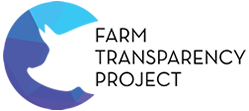News & Media > Media Releases and Statements > Statement on Vic Government Response to Animal Activism Inquiry
Statement on Vic Government Response to Animal Activism Inquiry
A recurring revelation throughout this inquiry was the total lack of transparency and legal restrictions that the industry operates under, with even the poster boy for animal agriculture – goat farmer John Gommans – being exposed for animal cruelty when hidden cameras captured the daily brutal shooting of newborn male goats.
The government’s response does touch on this lack of transparency, but it’s a shame to see that their priority appears to be boosting consumer confidence in the industry, rather than doing anything to actually address the underlying concerns of those consumers.
They’ve supported the recommendation for CCTV in slaughterhouses, but as we pointed out in our submission to the inquiry, unless that CCTV is publicly accessible it’s effectively useless as a means of boosting transparency, and in practice will only serve to limit the ability of activists to capture and expose footage publicly. Several of the 24 Australian slaughterhouses that have been exposed for cruelty in the last 9 years already had CCTV cameras installed. It’s in the best interests of slaughterhouse management to not report themselves for breaches of animal welfare laws, but even if an independent body were to be formed who could access the footage, they’re still only able to work within those very weak laws that allow for cruelty far beyond what the average Australian would consider acceptable.
They’ve also promised to use $710,000 of taxpayer money for a “consumer-focussed communications and engagement campaign to back farmers in Victoria” – in other words, a propaganda campaign aimed at assuring consumers that everything’s fine, rather than acknowledging the cruelty inherent to the industry.
They’ve supported the introduction of new laws similar to those introduced last year in NSW, intended to impede or dissuade activists and other whistle-blowers from exposing cruelty, yet have failed to address the reasons those people take it upon themselves to do so, and so are still placing the burden of industry transparency and accountability almost entirely on the community.
And finally, they’ve supported minor improvements to animal welfare legislation, but have said nothing about the growing calls for the exemptions for commercially farmed animals to be removed from that legislation so that pigs, chickens, turkeys, ducks, cows, goats and sheep could be legally protected from cruelty in the same way as dogs and cats.
We will continue to push for farm animals to be legally protected from cruelty, and for greater industry transparency so that consumers can make informed decisions about what they’re willing to support with their purchases.
Chris Delforce
Executive Director

 View as a PDF
View as a PDF.jpg)

